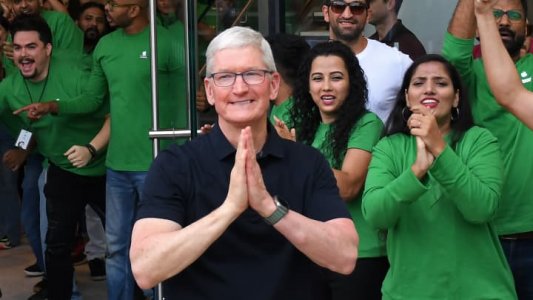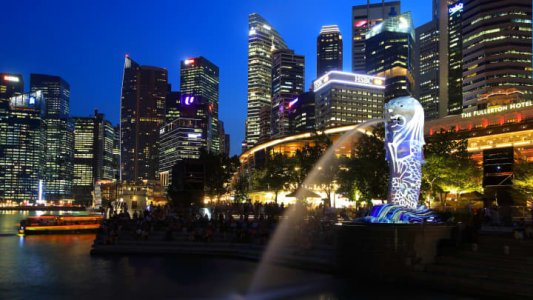TAIWAN Facing the Taiwan general election on January 13, 2024, which is five and a half months away, the biggest thing in common among the main contenders is that they all emphasize peace.
Although the opinions of various parties are different, the core message is "choose me and it will bring you peace". Regardless of the arguments and methods, everyone has promised a peaceful vision and promised to work hard to maintain peace and stability across the Taiwan Strait after being elected.
Take Terry Gou, the founder of Hon Hai Group, who is planning to run for election, as an example. He will visit the United States on Sunday (July 30), and he emphasized before departure that this is a peaceful trip. It is said that he may meet with the century-old legendary American diplomat Kissinger, and also arrange visits to think tanks and officials, in order to convey to the US the aspirations of the people of Taiwan for peace and not war.
On the 65th anniversary of the "August 23" artillery battle on August 23 this year, Kinmen will hold a memorial service. On the same day, Guo Taiming and the presidential candidates of the three major parties (DPP Chairman Lai Qingde, KMT Xinbei Mayor Hou Youyi, People's Party Chairman Ke Wenzhe) will all attend. The four are expected to put forward their own peaceful theories and ideas to win voters' approval.
After the civil war between the Kuomintang and the Communist Party ended in 1949 and the Kuomintang government retreated to Taiwan, the August 23 artillery battle took place on Kinmen Island in 1958, also known as the second Taiwan Strait crisis. After 44 days of the worst battle, the Chinese People's Liberation Army changed to "single fight, double do not fight" (one day shelling, two days no shelling), which lasted for 20 years until January 1, 1979 when China and the United States established diplomatic relations before stopping shelling.
Guo Taiming went to Kinmen in May this year to publish the Kinmen Peace Declaration of more than 2,500 words, advocating the resumption of negotiations with mainland China on the basis of the principle of "one China, each model", and using Kinmen as a permanent negotiation venue to form a cross-party, cross-ethnic, and cross-party organization. The generational team discusses the prospect of peace with the other side.
According to reports, the two behind-the-scenes writers of the Kinmen Peace Declaration are Guo Taiming's core strategists and senior media professionals Chen Wenqian and Yang Zhao. The two drafted it together, and it was revised and polished by Guo Taiming. According to political sources, Guo Taiming is likely to announce his decision to run for the election on the day of the 19823 anniversary and launch a citizen joint signature.
Taiwan just experienced the military exercise surrounding Taiwan last August, which is regarded as the fourth Taiwan Strait crisis. The peace and stability of the Taiwan Strait continues to attract global attention. This presidential election is also regarded by the opposition camp as a choice between war and peace.
In response to the call for peace, Lai Qingde, a candidate for the Democratic Progressive Party who claims to be a "pragmatic Taiwan independence worker", has adjusted the "anti-China protection of Taiwan" to a more moderate "peaceful protection of Taiwan", and proposed to strengthen national defense, economy, democracy and The "four pillars of peace" that maintain the status quo.
However, Lai Qingde, who is leading the poll support, mentioned on July 10 that "getting into the White House" is the ultimate political goal, and the independence line has once again aroused doubts in all parties. He will transit the United States in mid-August. Chinese ambassador to the United States Xie Feng said on July 19 that the top priority is to stop Lai Qingde from visiting the United States, "this gray rhino that is rushing towards us." It poses a serious challenge to Lai Qingde's image of maintaining peace.
In order to win the support of the Blue Army, KMT candidate Hou Youyi made it clear in early July that he supported the "1992 Consensus in line with the Constitution of the Republic of China," which received a positive response from Beijing. A spokesman for the Taiwan Affairs Office of the Mainland State Council stated that it is willing to work with all political parties in Taiwan, including the Kuomintang, to promote peaceful development across the Strait on the basis of adhering to the 1992 Consensus and opposing Taiwan independence.
The People's Party candidate Ke Wenzhe, who is firmly in the second place in the polls, advocates "Taiwan independence and cross-strait peace", that is, to restore communication with the mainland on the premise of ensuring Taiwan's democratic and free system and way of life. He also mentioned "a family on both sides of the strait", expressing goodwill to the mainland.
Whether the peace cake shouted on the stage can move people's hearts depends on the votes of Taiwanese voters. Before the goal of peaceful peace is achieved, voters are witnessing the swords and swords in the political arena every day.
The first is the daily confrontation between the government and the opposition. Many commentators pointed out that the ruling party candidate Lai Qingde's camp, which holds about 35% of the support in the polls, is adopting the strategy of "struggling to support Guo's marginal marquis" to suppress opposition leaders Yang Ke Wenzhe's momentum and encouragement of Gou Taiming's election formed a four-corner melee to prevent Hou Youyi from returning to the top of the polls. The general direction is to balance the opposition forces and check and balance each other to ensure that the opposition is divided.
Then there is the infighting and mutual fighting between the opposition parties. After the "nine-in-one" local election victory at the end of last year, the Kuomintang, which was in good shape, was demoralized by the nomination chaos a while ago. There were many backlashes, and Jin Pucong, the executive director nicknamed "Golden Knife", was also stabbed, and was suspected of plotting to destroy the party.
The integration of the opposition that many voters had hoped for appears to be difficult. Guo Taiming, Ke Wenzhe, and Hou Youyi refused to give in to each other. So far, they have not talked with each other. The struggle of the opposition camp has become the focus every day, and the supervision of the ruling party has become a foil.
Optimistically, the opposition camps are currently brothers climbing mountains, working hard on their own, and in the end they may be able to work together for the overall situation. But in the eyes of others, the vision of peace is far away in the sky, and swords and swords are in sight. If even internal communication and integration are so difficult, can we still hope to build a consensus among the people and restart cross-strait peaceful dialogue in the future?



